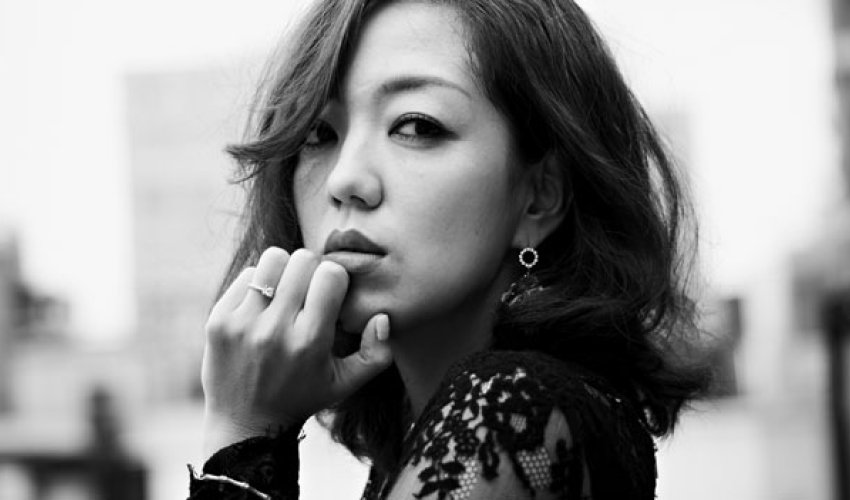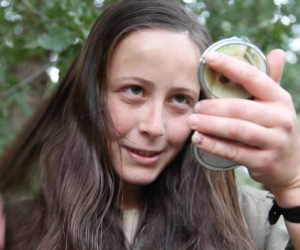Why hasn't Japan banned child-porn comics?

Japan's comics and cartoons - known as manga and anime - are a huge cultural industry and famous around the world. But some are shocking, featuring children in sexually explicit scenarios. Why has Japan decided against banning this material?
It's a Sunday afternoon in Tokyo and Sunshine Creation is in full swing. Thousands of manga fans, mostly men, crowd into an exhibition centre, poring over manga comic magazines laid out for sale on trestle tables snaking around the rooms.
Posters of elfin-faced, doe-eyed cartoon heroines, many of them scantily clad and impossibly proportioned, turn the cavernous space into a riot of colour.
"This area is mainly dealing with sexual creations," explains Hide, one of the event organisers.
We stop at one table where the covers on display feature two topless girls. To my eyes they look to be in their early or pre-teens, and the stories show them engaged in explicit sexual acts.
Several other stands are selling similar material. It would certainly be considered controversial, and possibly illegal, in the UK, Australia or Canada, but here it's no big deal.
"Everyone knows that child abuse is not a good thing," Hide says. "But having that kind of emotion is free, enjoying imagining some sexual situation with a child is not prohibited."
His candour takes me by surprise. He then introduces me to the word "Lolicon", short for "Lolita complex" - the name for manga featuring young girls engaged in sexually explicit scenarios. It can involve incest, rape and other taboos, though Hide's tastes lie more with high-school romance.
"I like young-girl sexual creations, Lolicon is just one hobby of my many hobbies," he says.
I ask what his wife, standing nearby, thinks of his "hobby".
"She probably thinks no problem," he replies. "Because she loves young boys sexually interacting with each other."
Material like this is a tiny part of Japan's huge manga industry, which generates around US $3.6bn in sales annually. But it attracts a lot of attention and controversy.
In June 2014, Japan's parliament voted to ban the possession of real images of child sexual abuse. Production and distribution of these images had been illegal since 1999, but Japan was the last country in the OECD to outlaw possession.
Child porn in Japan
Japan outlawed the production and distribution of child pornography in 1999 - 21 years after it was banned in the UK
In 2013, the US State Department described Japan as an "international hub for the production and trafficking of child pornography"
Japan's police agency reported 1,644 child pornography offences in 2013 - more than in any year since the 1999 law came into force
In 2014, Japan banned possession of real images of child porn - people were given one year to get rid of images in their possession
Listen to James Fletcher's radio report at 11:00 on Thursday 8 January on BBC Radio 4's Crossing Continents, or afterwards via the BBC iPlayer - it can also be heard on the BBC World Service's Assignment programme
At the time there were calls to also outlaw "virtual" sexual images - in manga, anime and games - of characters who appear to be under 18. But after much debate, Japan's parliament decided against this. The decision drew condemnation from child protection campaigners and NGOs, particularly outside Japan.
One clue to understanding it is in the fact that Hide was happily discussing his "hobby" with me only minutes after we first met. Although manga involving very young children does appear to have some social stigma attached to it, sexual material involving adolescents is a fairly mainstream interest.
Japan's legislators were apparently reluctant to put large numbers of manga fans - potentially millions - on the wrong side of the law.
Fans like Hide argue they are just enjoying harmless fantasy. No child models or actors are involved, he says, so "there is no child abuse for creating sexual topic mangas".
But is the boundary between fantasy and reality always clear?
Tokyo's Akihabara district is the spiritual home of the manga world, a place where neon signs and loud pop music overwhelm the eyes and ears. Multi-storey bookshops line the streets, selling manga on every topic under the sun.
(BBC)
ANN.Az





Similar news
Similar news
Latest news 
More news 



































 Photo
Photo 



 Video
Video 

